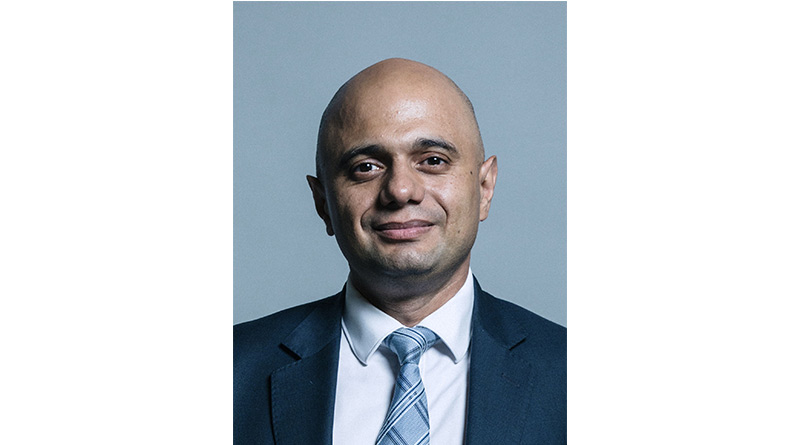Consultation Launched On Protecting Patients By Mandating Vaccination For Frontline Health And Social Care Staff
The government is seeking views on plans for staff in health and care settings in England to be required to have COVID-19 and flu vaccines to protect vulnerable people.
A six-week consultation will be launched today, looking at whether requirements should apply for health and wider social care workers: those in contact with patients and people receiving care. It would mean only those who are fully vaccinated, unless medically exempt, could be deployed to deliver health and care services. The consultation will also seek views on whether flu vaccines should be a requirement for health and care workers.
There is a longstanding precedent for vaccination requirements in NHS roles. Workplace health and safety and occupational health policies are already in place requiring the Hepatitis B vaccine for those undertaking exposure-prone procedure – such as surgeons.
The percentage of NHS trust staff who have received one dose of a Covid vaccine is around 92% nationally, with 88% of staff having received both doses. However, there is variation in uptake with new due data due to be published today showing that between NHS trusts, uptake rates can vary from around 78% to 94% for both doses.
National flu vaccination rates in the health service have increased from 14% in 2002 to 76% last year. In some settings, however, rates are as low as 53%.
Flu vaccination has been recommended for staff and vulnerable groups in the UK since the late 1960s, with the average number of estimated deaths in England for the five seasons 2015 to 2020 at over 11,000 deaths annually. During the 2019/2020 winter season, 86% of deaths associated with flu were people aged 65 and over.
As well as protecting vulnerable patients, the proposals will protect staff, which is particularly important for hospital trusts where extensive unexpected staff absences can put added pressure on already hardworking clinicians providing patient care during busy periods like winter.
Health and Social Care Secretary Sajid Javid said:
“Many patients being treated in hospitals and other clinical settings are most at risk of suffering serious consequences of COVID-19, and we must do what we can to protect them.
“It’s so clear to see the impact vaccines have against respiratory viruses which can be fatal to the vulnerable, and that’s why we’re exploring mandatory vaccines for both COVID-19 and flu.
“We will consider the responses to the consultation carefully but, whatever happens, I urge the small minority of NHS staff who have not yet been jabbed to consider getting vaccinated – for their own health as well as those around them.”
The government recently consulted on making COVID-19 vaccination mandatory for staff working the adult social care sector. To protect care home residents, workers will now need to be double jabbed as a condition of deployment in CQC-regulated care homes in England by 11 November, unless exempt.
The Scientific Advisory Group for Emergencies (SAGE) Social Care Working Group has also advised there is a strong scientific case to have similar approaches to vaccination offers and support in NHS inpatient settings as there will be in care homes, given the similarly close and overlapping networks between residents or patients and workers of all kinds in both.
The COVID-19 vaccine has already had a significant impact on reducing hospitalisations and deaths, with Public Health England estimating that over 112,000 lives have been saved so far.
The Joint Committee of Vaccination and Immunisation (JCVI) has advised this winter will be the first in the UK when SARS-CoV-2 is expected to co-circulate alongside other respiratory viruses such as flu. This could significantly contribute to the NHS’s winter pressures, with more vulnerable people expected to be admitted into hospital over the coming months.
The consultation will seek views on the proposals, its scope, and any potential impact it could have on staffing and safety such as reducing staff sickness absence. Findings will then help inform decision-making around how the change could be implemented and who could be exempt – if a decision is taken to introduce this requirement.
Staff, healthcare providers, stakeholders, patients and their families are being urged to take part to have their views heard, with a final decision expected this winter.
Since the COVID-19 vaccination rollout began in December 2020, the Department of Health and Social Care has partnered with NHS England to make vaccines as accessible as possible for health and social care workers.
NHS England continues put on hundreds of COVID-19 vaccination centres across the country to make vaccinations as easy as possible, and has been providing information at every turn to address concerns staff may have on vaccine safety and efficacy for different groups. For example, extensive real-world data showing vaccines are safe and highly effective for vulnerable groups, including pregnant women – a group we know can have some hesitancy around getting the vaccine. However, research shows pregnant women are more likely to become seriously ill from COVID-19 and 98% of those in hospital due to COVID-19 are unvaccinated – while no pregnant woman who has had two doses of the vaccine has ever been hospitalised from COVID-19 in the UK.
Every year NHS organisations are expected make sure staff can also easily access the flu vaccine, and encourage staff to get vaccinated, for example by opening easy access drop in clinics on hospital sites, or offering 24-hour mobile vaccinations.
We continue to do all we can to protect NHS patients and prevent hospital transmission. As part of the £5.4 billion package announced on Monday to support the NHS over the next six months, £2.8 billion will cover costs for enhanced infection control measures to keep staff and patients safe from the virus.






